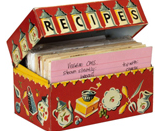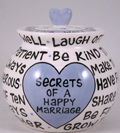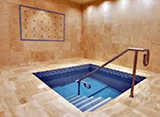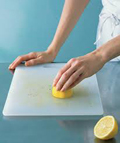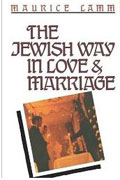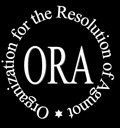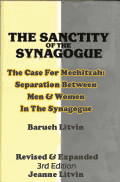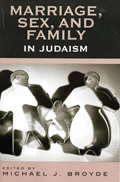Q & A

This page has 6 Q & A's about Wine.
♦♦♦♦♦
I bought a small wooden wine press at a garage sale.
It crushes about 2 gallons of grapes at a time.
Does this need to be kashered?
- Shulcan Aruch (YD 138:1) writes that a used wine press requires kashering. This process
is referred to as a nicuv (wiping). Shulchan Aruch (YD 138:10) describes this process as follows:
1. One wipes down the surface with ashes, then rinses them away with wate & then repeats
the process a second time.
2. The Taz (YD 138:1) explains that because a wine press is only used with cold items &
the juice does not remain inside the press for twenty-four hours, a used wine press does
not actually absorb any non-kosher wine. - 3.Therefore, it does not require a standard Kashering with boiling water.
However, because it resembles a wine barrel which can hold wine for an extended period,
Chazal required that one follow this special procedure for kosherization.
I bought a small wooden wine press at a garage sale
& I did not realize that it requires Kashering.
I already used it to make wine. Can I drink this wine?
- The status of this wine is a matter of dispute between the Shulchan Aruch (followed by Sefardim) and the Rama (followed by Ashkenazim).
- Shulchan Aruch (YD 137:2) writes that if one used a wine press without Kashering,the
juice is only permitted if some seeds or peels remain mixed with the juice, but if the seeds
& peels are completely removed the juice would be forbidden. - The Rama writes that in all cases are Bedi'eved (after the fact), the wine is permitted.
- The dispute revolves around the following issue.
1. The Talmud states that as a Rabbinic stringency, non-kosher wine is not botel (nullified)
in kosher wine.
2. However, non-kosher wine can be botel in other substances.
3. Therefore, the Shulchan Aruch holds that only other substances such as peels & seeds
can nullify non-kosher wine, but pure kosher wine alone cannot, no matter the amount.
4. Therefore, according to Shulchan Aruch, if some seeds & peels are mixed in the juice,
they can nullify the minimal droplets of wine that remained behind in the press, but if the
wine passes through a filter as it exits the press, it would become forbidden.
5. On the other hand, the Rama holds that this stringency (that non-kosher wine is not botel
in kosher wine) only applies to wine that was libated for idol worship.
6. Our standard non-kosher wine is not of that sort & would be botel in kosher wine.
I bought a used wine barrel.
Must it be Kashered before I put wine in it?
- Shulchan Aruch (YD 137:1) writes that one may not place kosher wine into a barrel that previously held non-kosher wine, unless the barrel was first kashered or had not been used
for 12 months. - When non-kosher wine is stored in a barrel for more than 24 hours, some of the wine will be absorbed into the walls of the barrel.
- This is true even though the wine & the barrel are cold.
- If kosher wine is later placed into that barrel, some of the absorbed wine will emerge from
the walls & mix with the kosher wine. - However, there is a special leniency regarding barrels that stored cold wine.
- Chazal ruled that instead of requiring that the barrels be kashered, one can simply put them aside for 12 months to allow the wine that was absorbed in the barrels to completely dry out.
- Most poskim hold that this leniency is unique to wine barrels & cannot be applied in any
other instance of vessels that absorbed non-kosher substances If one cannot afford to wait
for 12 months, one can kasher the barrels.
I bought a non-kosher wine barrel
& would like to Kasher it for immediate use. How can this be done?
- Ordinarily,kashering of utensils is accomplished by immersing a non-kosher utensil into a
pot of boiling water. - For wine barrels, because of their large size, this is clearly not an option.
- However, Shulchan Aruch (YD 135:7,12) writes that there is another option –milui viruy
gimmel yamim (filled & emptied 3 days). - This entails filling the barrel with cold water, letting the water sit in the barrel for 24 hours, so that the water can soak into the walls of the barrel, and then spilling out the water.
- This process is repeated 3 times, but the 3 times need not be on consecutive days.
- They can even be months apart.
- The water used for kashering cannot be drunk or recycled for a second use.
I bought a used wine barrel & would like to use it immmediately.
I can't afford to wait 3 days.
Is there any way to kasher it right away?
- The Rama (YD 135:15) offers an additional option for kashering a wine barrel.
- One may pour boiling water over all the surfaces of the barrel. However, this is not a
practical option. - The boiling water will spread over the barrel & will not be poured directly on the entire
surface. - The water which spreads in the barrel is only a kli sheini (secondary heat source).
- Therefore, the Rama writes that this method is only bedi'eved.
- The lichatchila (proper) method for kashering is to place heated stones in the barrels
together with the hot water. - The heated stones will render the barrel a kli rishon (original heat source), even when the water spreads inside the barrel.
- Therefore, this is considered a proper way to kashera wine barrel.
I bought a wine barrel at an auction.
I do not know when it was last used to hold wine.
It is likely that it has not been used in many years.
Must I still kasher the barrel or can I assume
that 12 months have already elapsed. - At first glance, one might think that it should be permitted.
- Since placing kosher wine in a non-kosher wine barrel is only a rabbinic prohibition, the
rule should be that one can be lenient in cases of doubt. - However, a similar question was posed to the Rashba (Teshuvos Chadashos 67) & he
ruled that since the barrel was known to have contained non-kosher wine, it will retain a
non-kosher status until we know for sure that 12 months have passed. - Another consideration is that a wine barrel is a davar she 'yeish lo matirin (something
that will eventually become permitted on its own.)
- In such cases, Chazal required waiting until the item is clearly permitted without relying on doubts.


